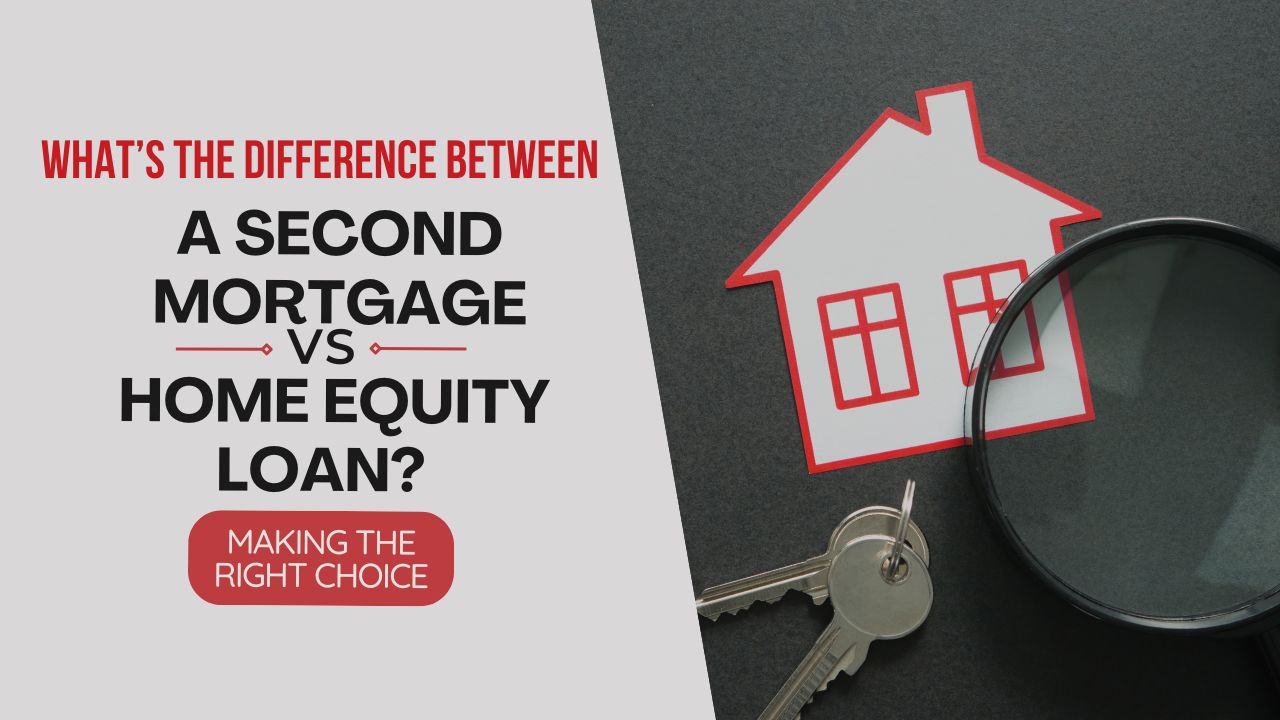 Being a co-signer on a mortgage can be a significant financial commitment, one that you might not want to maintain indefinitely. Whether your circumstances have changed, or the primary borrower is now in a position to manage the loan independently, it’s understandable to want to remove your name from the mortgage. While the process can be complex, there are several pathways to achieve this goal. Here’s what you need to know.
Being a co-signer on a mortgage can be a significant financial commitment, one that you might not want to maintain indefinitely. Whether your circumstances have changed, or the primary borrower is now in a position to manage the loan independently, it’s understandable to want to remove your name from the mortgage. While the process can be complex, there are several pathways to achieve this goal. Here’s what you need to know.
Understanding the Role of a Co-Signer
When you co-sign a mortgage, you’re essentially taking on joint responsibility for the loan. This means that if the primary borrower defaults, you are legally obligated to step in and make the payments. While co-signing can be a way to help someone secure a mortgage when they might not qualify on their own, it also ties your credit and financial health to the loan.
Removing yourself from this obligation requires deliberate steps and cooperation with the borrower and the lender. Let’s explore your options.
Option 1: Refinancing the Mortgage
One of the most common ways to remove a co-signer from a mortgage is through refinancing. This involves the primary borrower applying for a new loan in their name alone. If they qualify for the refinance based on their creditworthiness, income, and debt-to-income ratio, the new loan will replace the original mortgage, effectively releasing you from any obligation.
What to Consider with Refinancing:
-
Eligibility: The borrower must meet the lender’s criteria without relying on your financial profile.
-
Costs: Refinancing comes with closing costs, which the borrower will need to cover.
-
Interest Rates: Depending on market conditions, refinancing could result in higher or lower monthly payments for the borrower.
If refinancing is viable, this is often the cleanest and most straightforward way to remove your name from the loan.
Option 2: Loan Assumption
In some cases, the borrower may be able to assume the existing loan, essentially taking over the mortgage under its current terms without involving you. This option depends on whether the lender allows loan assumptions, as not all loans are assumable.
Steps for Loan Assumption:
-
Check with the Lender: Confirm if the loan qualifies for assumption and inquire about the process.
-
Verify Borrower Qualifications: The borrower will need to demonstrate that they can handle the payments independently.
-
Complete Legal Documentation: If approved, the lender will update the loan documents to reflect the borrower as the sole responsible party.
Loan assumption can be a good option if refinancing isn’t feasible, but it typically requires lender approval and may involve fees.
Option 3: Selling the Property
In some situations, selling the property might be the most practical solution. This is particularly true if the borrower struggles to qualify for refinancing or loan assumption. Selling the home allows the mortgage to be paid off entirely, freeing both you and the borrower from the loan.
Important Considerations:
-
Market Conditions: The property’s value should ideally cover the remaining loan balance and any selling costs.
-
Timing: Depending on the market, selling a home can take weeks or even months.
-
Agreement with the Borrower: Both parties need to agree to the sale and cooperate throughout the process.
While selling the property may seem drastic, it provides a definitive resolution to the shared financial responsibility.
Other Factors to Keep in Mind
-
Work with the Lender: Open communication with the lender is crucial, as they will need to approve any changes to the mortgage.
-
Monitor Your Credit: Until your name is officially removed, late payments by the borrower could affect your credit score.
-
Legal and Financial Advice: Consulting a financial advisor or attorney can help you navigate the process and ensure your interests are protected.
Why Removing Yourself Matters
Remaining a co-signer ties up your financial resources and could limit your ability to qualify for other loans or make significant purchases. It also places your credit score at risk if the primary borrower misses payments. Taking steps to remove your name is not just about peace of mind; it’s a way to regain control of your financial future.
By understanding your options, whether through refinancing, loan assumption, or selling the property, you can take the necessary steps to untangle yourself from the mortgage and move forward confidently.
 Imagine you are about to purchase your dream home, and a generous financial gift from family or friends is making it possible. It’s a moment to celebrate! But did you know that mishandling gift funds can lead to delays, added stress, or even jeopardize your loan approval?
Imagine you are about to purchase your dream home, and a generous financial gift from family or friends is making it possible. It’s a moment to celebrate! But did you know that mishandling gift funds can lead to delays, added stress, or even jeopardize your loan approval? If you’ve been diligently paying down your mortgage, you’ve likely built up a valuable asset: home equity. This financial resource can be a game-changer, offering opportunities to fund major expenses, consolidate debt, or tackle unexpected financial challenges. But with multiple borrowing options tied to your home equity, it’s essential to know which route aligns best with your goals.
If you’ve been diligently paying down your mortgage, you’ve likely built up a valuable asset: home equity. This financial resource can be a game-changer, offering opportunities to fund major expenses, consolidate debt, or tackle unexpected financial challenges. But with multiple borrowing options tied to your home equity, it’s essential to know which route aligns best with your goals. Imagine that you are exploring your city or a new city and you stumble upon your dream home. It is perfect! With an open kitchen for entertaining, a backyard oasis for relaxation, and all the space you’ve envisioned. Just as you’re ready to make your move, someone else beats you to it because your finances weren’t prepared. The good news is you can avoid it with a little preparation.
Imagine that you are exploring your city or a new city and you stumble upon your dream home. It is perfect! With an open kitchen for entertaining, a backyard oasis for relaxation, and all the space you’ve envisioned. Just as you’re ready to make your move, someone else beats you to it because your finances weren’t prepared. The good news is you can avoid it with a little preparation. The previous week’s reins were held by the Federal Reserve’s Rate Decision and also the preferred inflation indicator, the PCE Index. With the PCE Index coming in well above the Federal Reserve’s 2% target, it suggests that rate cuts may be postponed much longer this year than initially anticipated.
The previous week’s reins were held by the Federal Reserve’s Rate Decision and also the preferred inflation indicator, the PCE Index. With the PCE Index coming in well above the Federal Reserve’s 2% target, it suggests that rate cuts may be postponed much longer this year than initially anticipated. Higher education can be one of the most significant financial investments you’ll make, second only to purchasing a home. While federal loans are a common method for covering college costs, using your home’s equity is another option to consider. Before making a decision, it’s important to understand the pros and cons of tapping into your home equity to pay for college.
Higher education can be one of the most significant financial investments you’ll make, second only to purchasing a home. While federal loans are a common method for covering college costs, using your home’s equity is another option to consider. Before making a decision, it’s important to understand the pros and cons of tapping into your home equity to pay for college. The VA loan program offers exceptional benefits to veterans, active-duty service members, and eligible surviving spouses, including no down payment, competitive interest rates, and no private mortgage insurance (PMI). But what about buying land? While the rules around using a VA loan for land can be more complex, there are still ways to make it work. Here’s a breakdown of your options if you’re looking to buy land using a VA loan.
The VA loan program offers exceptional benefits to veterans, active-duty service members, and eligible surviving spouses, including no down payment, competitive interest rates, and no private mortgage insurance (PMI). But what about buying land? While the rules around using a VA loan for land can be more complex, there are still ways to make it work. Here’s a breakdown of your options if you’re looking to buy land using a VA loan. Purchasing a home is a significant milestone, and first-time homebuyer programs make the process easier for many stepping into homeownership. But what if you’ve owned a home before or are currently a homeowner? Can you qualify as a first-time homebuyer again?
Purchasing a home is a significant milestone, and first-time homebuyer programs make the process easier for many stepping into homeownership. But what if you’ve owned a home before or are currently a homeowner? Can you qualify as a first-time homebuyer again? When securing a mortgage, buyers aim to lock in the best possible interest rate. But what if interest rates fall after you’ve closed on your loan? Are you stuck with your current rate? The good news is that you may have options, whether your loan is brand-new or you’ve been paying it off for a while. Here are three ways to take advantage of lower rates.
When securing a mortgage, buyers aim to lock in the best possible interest rate. But what if interest rates fall after you’ve closed on your loan? Are you stuck with your current rate? The good news is that you may have options, whether your loan is brand-new or you’ve been paying it off for a while. Here are three ways to take advantage of lower rates.
